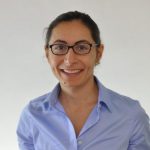Dr. Michael Kobor, department of medical genetics, Dr. Brett Finlay, department of biochemistry and molecular biology, and Dr. Sara Mostafavi, department of medical genetics, are part of a cross-disciplinary team that received funding from the Manulife CIFAR Population Health & Well-being Grant Program.
The grant provides funding for CIFAR Program Members to study various social, behavioural, and public health-related aspects of COVID-19.
The team of 11 researchers are looking into how COVID-19 will affect children’s brains, immune system, and ability to thrive.

Dr. Michael Kobor
“I am grateful to CIFAR and Manulife for funding this project,” says Dr. Kobor. “These funds will enable us to develop an integrative ‘Society to Cell’ approach to understand the hidden costs of COVID-19 on children’s health and well-being. As Canada plans for recovery, policymakers need to make evidence-based decisions to ensure that children are not unintended casualties of the pandemic.”
This project titled “A bio-ecological integrative approach to understand the ‘hidden costs’ of COVID-19 on children” is one of six new COVID-19 and population health research projects that will offer new insights into the effects of the pandemic.

Dr. Brett Finlay
“We know that changes to children’s environments can have profound impacts on their biology and health,” says Dr. Finlay. “This funding will bring together an international team of expert researchers across disciplines. It’s imperative to understand the long-term impact of the ‘COVID-19 experience’ on children so that inclusive policies can be implemented to support the next generation.”
The team will integrate biological, behavioural, and sociological data to assess the long-term effects of the pandemic on children.

Dr. Sara Mostafavi
“Using machine learning, big data integration and artificial intelligence, we can develop models for combining evidence across multiple types of data from multiple research groups aimed to understand child health and well-being,” says Dr. Mostafavi, also a Canada CIFAR AI Chair.
The project is derived from the work that Drs. Kobor, Finlay and Mostafavi have collaborated together on as part of the UBC Social Exposome Cluster.